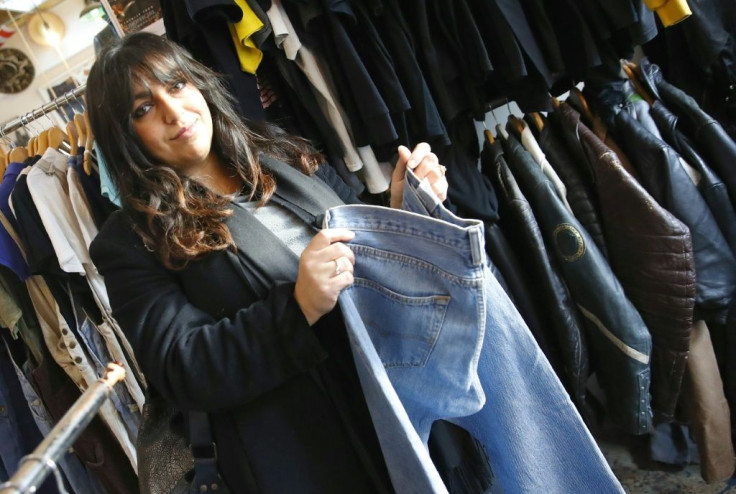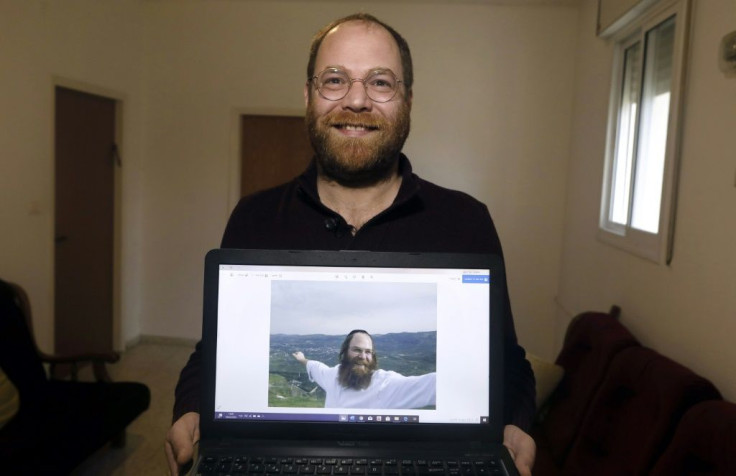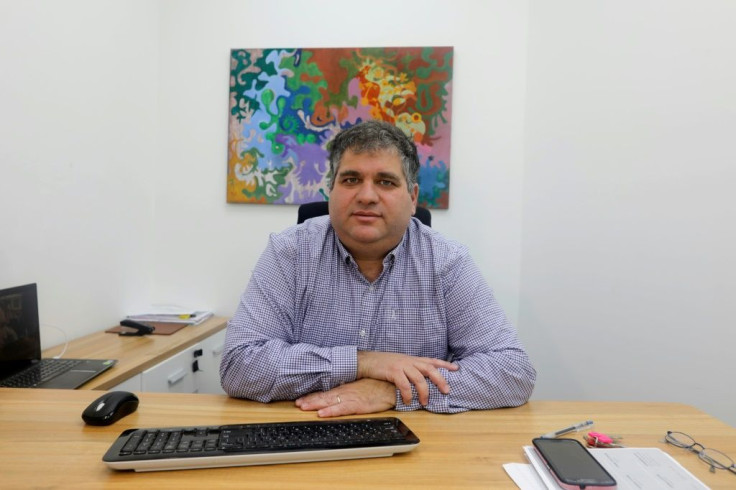The 'Double Life' Of Ultra-Orthodox Jews In Israel

As the men wearing long black coats approached, Shmuel, a lapsed member of Israel's ultra-Orthodox Jewish community, lowered his head to avoid being recognised.
Like those moving towards him on the Jerusalem sidewalk, Shmuel is part of a community known in Hebrew as haredi.
But Shmuel, who is his late 30s and asked that his real name be withheld, said he stopped believing in God a decade ago.
He agreed to meet AFP at a bar, a place haredim cannot go for religious reasons.
He was there to meet other ultra-Orthodox Jews who doubt their faith but want to continue appearing religious to avoid being shunned by their community.
"No one knows about me," Shmuel said. "Not my wife, not my parents, no one."
For his night out, Shmuel had swapped his traditional black felt hat for a sailor's cap.
"My hat is in my bag. I'll put it back on before going home," he said.
Shmuel is part of a group known as Anusim -- Jews who have inwardly renounced strict haredi practices.
The term, which translates as 'the coerced', historically comes from Jews forced to convert to Christianity during the Inquisition. But in the modern case, it reflects a sense of being obliged into Orthodoxy.
Yair Hass, who heads the Hillel association that supports people who leave religious communities, estimated the Anusim could number tens of thousands in Israel.
"The price to pay is so high," for openly rejecting haredi life, Hass said, adding that Anusim risk being banished by the families and losing access to their children.
"So some decide not to leave... and have a double life."
The Anusim gathered at the dimly-lit Jerusalem bar initially met on Facebook.
Everyone used pseudonyms, underscoring their collective fear of being exposed.

But when the community moved from a virtual world to the real one, the relationships grew warmer.
"There's a good turnout tonight," Shmuel said, smiling as he scanned the 20 Anusim in the bar, all appearing comforted to be with others enduring the relentless anxiety associated with a double life.
Shmuel told AFP his break from orthodoxy began when he started questioning the rules drilled in him since his youth.
"It no longer makes sense to me," he said, confessing he now eats pork, in violation of Jewish dietary laws, or kashrut.
While those at the bar may have inwardly renounced ultra-Orthodox precepts, many still looked devout.
The men had thick, curly beards while the women wore long dresses and wigs covering their hair.
Avigail, also not her real name, tells her family she is going to meet friends before heading to the "underground" pub night.
"At a certain point, I wanted to die," she told AFP, referring to the stress of concealing her secret.
"I was like, is it going to be like this for the rest of my life?"

Hass said that Anusim who are trying to stay in their community while privately craving an escape face an "almost untenable" situation.
"It is a society that punishes you very severely if you deviate from the path," he told AFP.
Shmuel said: "If am discovered, I lose everything... my children, my job."
At his home outside Jerusalem, Avi Tfilinksi told AFP he was cut off from his six children after leaving Neturei Karta.
The strict sect views Israel as heretical, believing a true Jewish state should only be founded upon the messiah's arrival.
He said his 12-year double life as a rabbi began to fracture when his mobile phone vibrated on Shabbat.
For haredim, using electronic devices on Shabbat is totally forbidden and Tfilinksi's brothers suspected wider acts of rebellion.
"My father gathered the family, held a mourning ceremony and declared me dead," the 43-year-old said.
"I didn't steal anything from anyone, I didn't hurt anyone, I just chose another way of life. For that, you punish me like this?" he said, struggling to contain his emotions.
Three years after his banishment, Tfilinksi spotted his children buying sweets at Jerusalem's Mahane Yehuda market.
"I waited for them in an adjacent street, where I knew they would pass," he said.
"They recognised my voice and jumped in my arms and kissed me, crying for about five minutes. I told them I hoped I would be able to see them again."
Tfilinksi said he cobbles together a living working for an events company and is an aspiring comedian.
Batia Leora Deil, 40, said she also lost custody of her four children after being discovered.
"I would leave the house with a wig, wearing a long dress, the whole thing, and I would change in the car."
She said her community branded her a "criminal", thrusting her into a secular world she was ill-equiped to handle, with limited education beyond Torah.
She moved to liberal Tel Aviv and started studying cinema while looking for steady work.
Yehuda Shushan, 33, said his three years spent pretending to be religious were "the most difficult" of his life.
His job compelled him to talk "about Torah and holiness all day", he recalled.
"It's horrible when you pretend... You are always afraid of getting caught."
Since leaving haredi life five years ago, Shushan has worked as a waiter but is now between jobs.
He has counted on support from Hillel and conceded that breaking from his former community was challenging.
"You are projected into a new universe of which you know nothing. You do not know anyone, you have no career, you have not studied and you have to face it, but this feeling of freedom is definitely worth it."
Asked whether he would ever consider openly renouncing the ultra-Orthodox life he no longer wants, Shmuel said: "One day, maybe."
For now, he is planning another act of private defiance: in Israel's March 2 election, he said he will vote for a secular party, rejecting his rabbi's instructions.
© Copyright AFP 2024. All rights reserved.





















